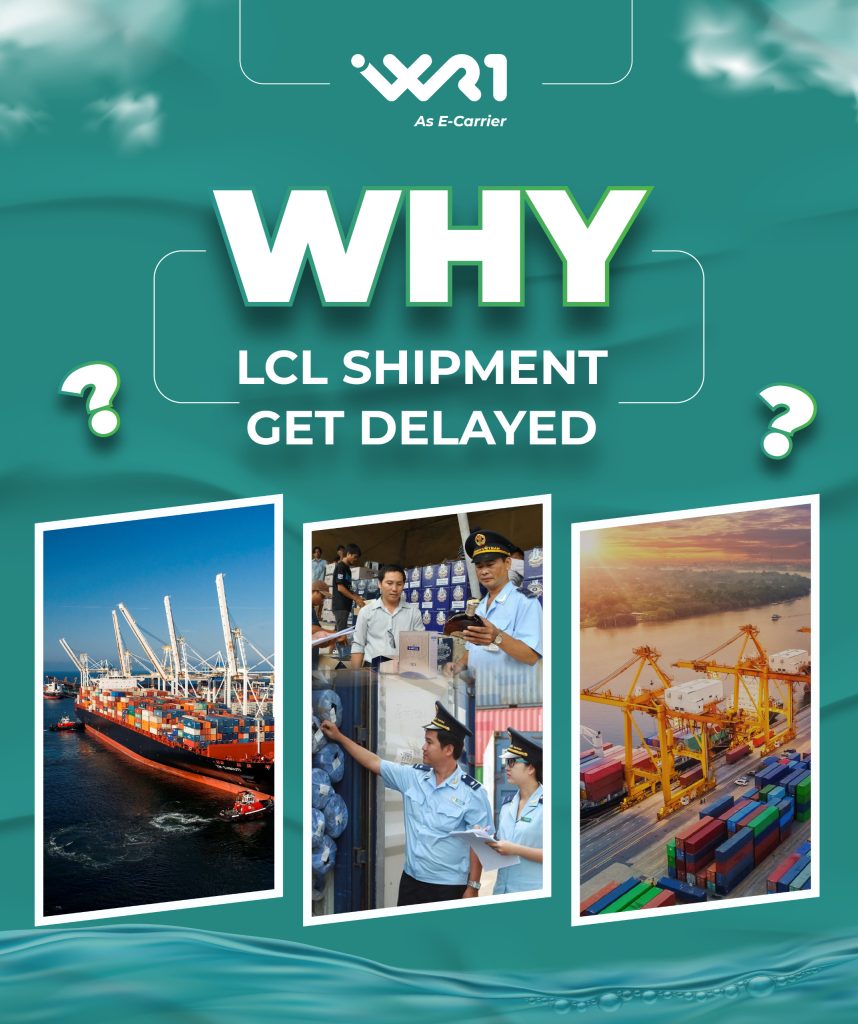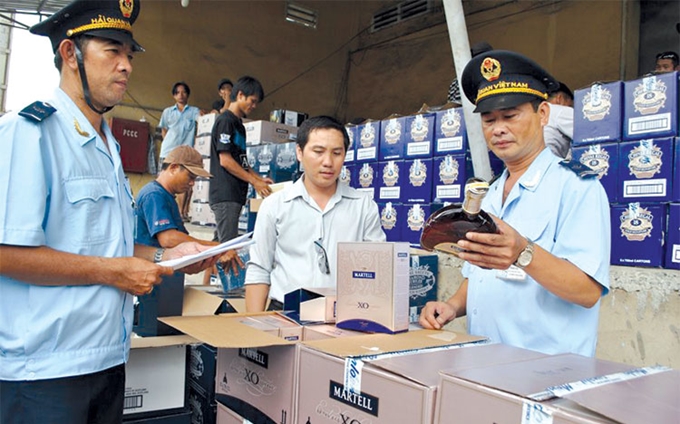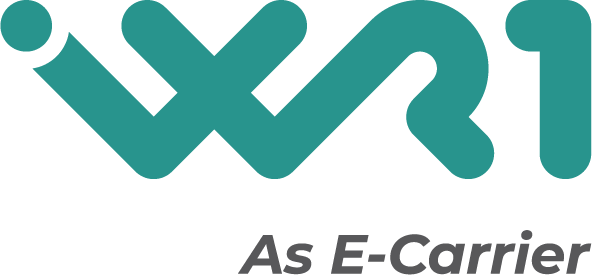Has your imported cargo ever been delayed, causing you anxiety and affecting your business plans? Continuing the series of articles on LCL shipments, WR1 will discuss the causes of delays before the container’s journey begins. This article will help you decode the main causes of delays for your LCL shipment before it starts its journey, so you can proactively prevent and find appropriate solutions.

Cut-off time
Cut-off is the deadline for the exporter to complete the customs clearance for the shipment. For full container load (FCL) containers, the container is usually packed at the supplier’s premises and then transported to the container yard at the port. Each time you book a slot on a ship, the shipping company will issue a “cut-off date”, which is the date by which the packed container must be returned to the port. If the Shipper sets the Cut-off time too late, the freight forwarder will not have enough time to handle procedures such as booking with the shipping company, preparing documents, packing goods, etc., leading to the cargo missing the ship.
Customs procedures
Customs’ job is to protect the country from the import of illegal, dangerous, or environmentally harmful materials. While they verify goods through labels and shipping documents, a small percentage of containers are sent for Customs inspection.
Customs brokers will sometimes select containers – randomly or based on the item/importer – for careful inspection. Depending on the type of inspection, the shipment may be delayed from a few hours to a week, which may incur inspection fees.
Customs usually inspect using one of three different methods:
- Document inspection: Customs will review shipping documents to ensure goods are legal and safe for import. This usually takes a few hours.
- Container inspection: Customs will pull over the container, open it, and go through the container for a short period to inspect the goods. This usually takes 1-2 days.
- Thorough cargo inspection: Customs will occasionally pull over a container, open it and unload all boxes/pallets/etc. out of the container and inspect each individual carton to ensure there are no Customs violations in the shipment. This can take from 2 days to over a week to inspect.
There is not much that can be done to avoid Customs inspections as they are chosen randomly. However, keeping clear shipping records and following proper and necessary procedures will help to limit delays.

Delays from the shipping company
Sometimes shipping companies reschedule their schedules to minimize delays for customers in case of disruptions or to optimize cargo loading. Sometimes, the delay comes from the Port. Currently, there is a major port congestion situation with ships carrying tens of thousands of containers and not enough truck drivers and stevedores to meet the demand. In addition, it takes a long time to unload ships. Therefore, this can affect the shipping time. The Forwarder will regularly monitor the schedules and times of the shipping companies they use to inform customers. However, delays of more than one day are very rare in the container shipping industry, and if they do occur, the cause is usually with the shipping company or the Forwarder.
The shipping company’s adjustment of the ship’s schedule due to factors such as bad weather, technical breakdowns, changes in loading and unloading plans, etc., can also affect the cargo transportation time.
Other delays
In LCL international shipping, in addition to the above causes, delays can also arise from many other issues. For example, weather, political or civil events.
Your carrier may be an intermediary. The freight forwarder may arrange for the shipment of goods through two different actual carriers. The first carrier may transport the goods from the loading port to the transhipment port. While the second carrier transports the goods from the transhipment port to the discharge port.
Risks associated with freight forwarders
Freight forwarders have to handle more complex procedures for LCL shipments than for FCL shipments.
International import cargo delays or delays can be very stressful and frustrating for you. Often, things are simply beyond anyone’s control due to port congestion, truck breakdowns, or customs inspections. But understanding why your goods are delayed can help you in the future.
In short, cargo delays during transportation are something no one wants. However, we can reduce the risk of this happening by using a variety of planning methods or always adding at least one week to the quoted shipping time for ocean shipments as a buffer. Hopefully this article can help to answer some of the questions and add knowledge to the logistics industry.



 Tiếng Việt
Tiếng Việt

